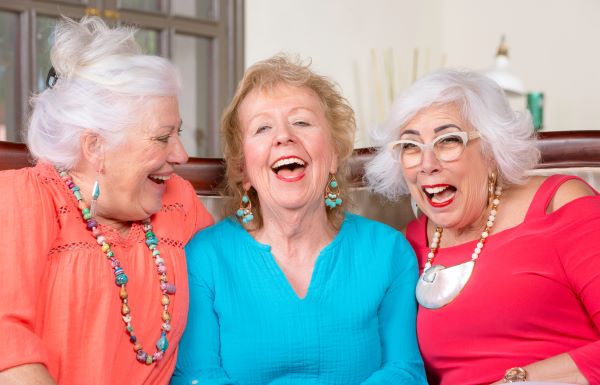
The Baby Boomer Generation Prefers Independent Living With Home Sharing
As the number of baby boomers living alone increases, the number of family caregivers who can assist them is insufficient. The ratio of caregivers to care recipients has fallen and is projected to continue for the next forty years. According to the Pew Research Center, 20 percent of baby boomers are childless. That number is double the previous generation. Additionally, over 40 percent of boomers don’t have a spouse or partner and have children living more than 500 miles away.
Solutions that Make Independent Living Possible
Because solo agers who own their own home prefer to reside there, many are finding creative ways to share costs and reduce the workload, stress, and isolation of living alone. It involves housemates, but don’t call them that, and don’t call them roommates either. The boomer generation is adopting the term POSSSLQ (pronounced “possle-cue”), short for People of Similar Sensibilities Sharing Living Quarters. This moniker follows the former US Census Bureau designation for unmarried couples, Persons of the Opposite Sex Sharing Living Quarters. Whatever the preferred terminology, this new housemate trend is a demographic and economic shift that is redefining living and financial arrangements in retirement.
Shared Housing Resources for Seniors
With the historic shortage of homes pushing up housing costs and the fact that many boomers realize they haven’t saved nearly enough for retirement, housemates are a great solution. Some of the best ground rules to follow are to find someone you may already know, perhaps of similar background. Also, keep your POSSSLQ in an age range to your own. Seniors looking to be housemates of a certain age can find each other on shared housing websites. It’s a great way to stretch retirement dollars and still have independence in a shared living experience without loneliness or feeling like a burden to family.
Women account for most of these new housemate living arrangements. Women tend to live longer and have less retirement savings compared to their male counterparts. Women also tend to be more adept at making a home and creating companionable spaces when cohabitating.
Considerations for Home Sharing
The rules of roommates are usually broad and general. Some specific ground rules may be non-negotiable such as pets, loud music, or romantic sleepovers. However, many women have a more flexible approach and often work out smaller details in daily conversation. Often the secret to housemate living is to embrace its unexpected nature so long as an established basic framework remains intact. You can learn more about the pros and cons of shared living arrangements in an article by 50Plus Today. These boomer housemates are expressing creativity in problem-solving issues related to their retirement years and want to focus on living life rather than end-of-life planning.
Legal Help to Define Your Home Sharing Relationship
For confidence when entering a home sharing relationship, create a legal document that outlines home ownership, household expenses, chore responsibilities, house rules, as well as identification of objects you already own in your home (if the owner) or what you may bring into the house (as the new housemate). Remember that you spend the first half of your life trying to get something and the second half of your life trying to keep it. Another issue to discuss and lay legal ground rules for is what happens if a housemate gets a dementia diagnosis? A housemate living situation should not evolve into a caretaking situation.
Whether you are the homeowner or the housemate, it’s imperative to have a legal document signed and notarized defining the living arrangement. Contact our elder law firm at (270) 483-3001 today and schedule an appointment to discuss how we can help with the planning and execution of a housemate agreement. We look forward to the opportunity to work with you.
